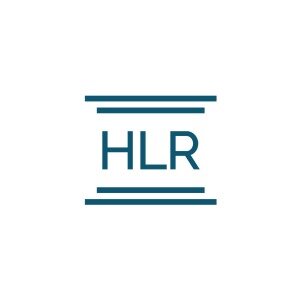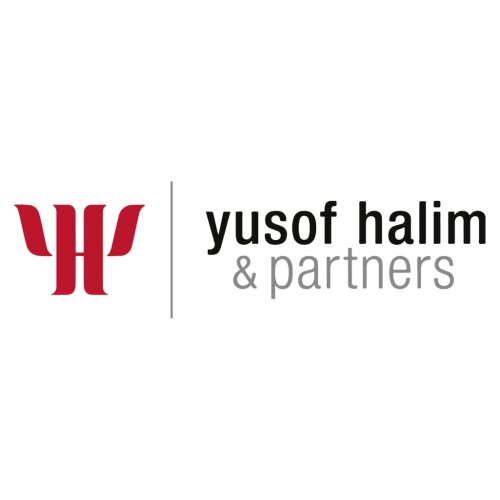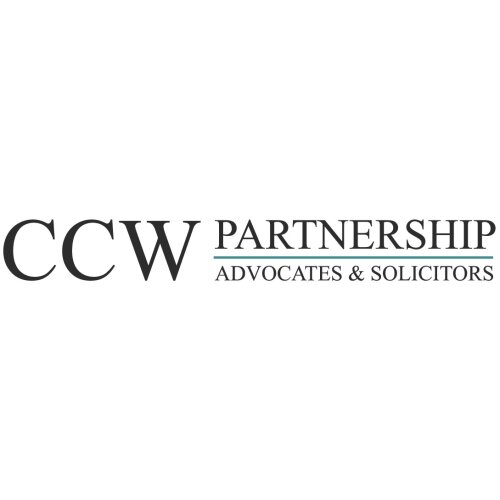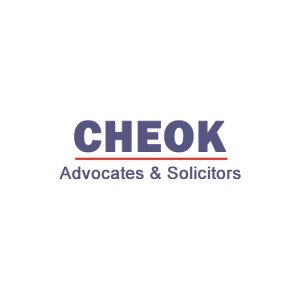Best Debt Capital Markets Lawyers in Brunei
Share your needs with us, get contacted by law firms.
Free. Takes 2 min.
Or refine your search by selecting a city:
List of the best lawyers in Brunei
About Debt Capital Markets Law in Brunei
Debt Capital Markets in Brunei refer to the financial environment where organizations such as governments, corporations, and financial institutions raise funds by issuing debt securities. These securities typically include bonds, notes, and other instruments that obligate the issuer to repay borrowed funds with interest over time. The legal framework governing Debt Capital Markets in Brunei combines local regulations, guidelines from the Brunei Darussalam Central Bank (BDCB), and international best practices. The development of the Debt Capital Markets sector supports infrastructure development, investment, and overall economic growth in Brunei.
Why You May Need a Lawyer
Engaging in transactions within the Debt Capital Markets often involves complex legal agreements and regulatory compliance. Here are some common scenarios where you may require legal assistance:
- Structuring and issuing bonds or other debt securities
- Ensuring compliance with the Securities Markets Order and related regulations
- Due diligence and disclosure requirements before offering securities
- Drafting and negotiating underwriting or subscription agreements
- Advising on cross-border transactions involving foreign investors
- Resolving disputes with bondholders or regulatory authorities
- Assisting with listing debt securities on stock exchanges
A lawyer specializing in Debt Capital Markets can help protect your interests, navigate regulatory hurdles, and ensure that all documentation is legally sound.
Local Laws Overview
The regulatory landscape for Debt Capital Markets in Brunei is shaped by several key laws and authorities:
- Securities Markets Order, 2013 - This is the main law regulating the issuance and trading of securities, including debt instruments. It outlines the requirements for registration, disclosure, and compliance for issuers and intermediaries.
- Brunei Darussalam Central Bank (BDCB) - As the main regulatory authority, BDCB supervises financial institutions and oversees the licensing and conduct of activities in the capital markets.
- Anti-Money Laundering Orders - Issuers and participants must comply with anti-money laundering and counter-terrorism financing laws, requiring careful KYC and due diligence processes.
- Islamic Finance Regulations - Brunei’s financial market also accommodates Islamic finance products such as sukuk, which come with additional compliance requirements in line with Shariah principles.
- Exchange Listing Rules - If debt securities are to be listed, compliance with the Brunei stock exchange’s specific regulations is required.
Understanding these core regulations is vital, as non-compliance can lead to penalties, suspension of transactions, or even criminal liability.
Frequently Asked Questions
What are Debt Capital Markets?
Debt Capital Markets are platforms or systems where organizations raise funds by issuing debt instruments like bonds. Investors buy these instruments, lending money to the issuer for a set period in return for regular interest payments.
Who regulates Debt Capital Markets in Brunei?
The Brunei Darussalam Central Bank (BDCB) is the primary regulator, overseeing all types of securities activities and ensuring compliance with local laws and regulations.
What types of debt instruments are common in Brunei?
The most common debt instruments include government and corporate bonds, sukuk (Islamic bonds), and medium-term notes.
Can foreign investors participate in Brunei’s Debt Capital Markets?
Yes, foreign investors can invest in Brunei’s debt instruments, subject to compliance with local regulatory requirements and possible foreign exchange controls.
What disclosures are required before issuing debt securities?
Issuers must prepare and provide a prospectus or offering memorandum disclosing all relevant financial, legal, and business information to potential investors.
What is sukuk and how does it differ from traditional bonds?
Sukuk are Shariah-compliant debt instruments structured according to Islamic finance principles, which prohibit interest and speculative activities. Sukuk represent ownership in assets or projects, unlike conventional bonds which are straightforward loans.
What are the penalties for non-compliance with securities laws in Brunei?
Penalties can range from monetary fines and suspension of activities to criminal prosecution, depending on the nature and severity of the violation.
How do I get a debt security listed on a Brunei stock exchange?
You must comply with the exchange’s listing rules, submit required documentation, and meet ongoing reporting obligations. Legal advice is recommended to ensure the process goes smoothly.
Do I need approval from authorities before issuing debt securities?
Yes, issuers are generally required to seek approval or registration from the BDCB and ensure compliance with all disclosure and procedural requirements.
When should I consult a lawyer in relation to Debt Capital Markets?
It is advisable to consult a lawyer from the earliest stages of planning a debt issuance or investment, particularly when drafting documentation, conducting due diligence, or negotiating deals.
Additional Resources
If you are seeking further information or support, you may find these resources valuable:
- Brunei Darussalam Central Bank (BDCB) - The central authority for financial and capital market regulation in Brunei.
- Ministry of Finance and Economy - Involved in policy-making for government debt issuance and financial markets.
- Brunei Stock Exchange - For listing and trading requirements related to debt securities.
- Brunei Darussalam Capital Market Association - An industry body that promotes market development and provides updates on relevant laws and practices.
Next Steps
If you require legal assistance in the Debt Capital Markets sector in Brunei, consider taking the following steps:
- Identify your specific needs, such as issuing a bond, listing a sukuk, or resolving a regulatory matter.
- Arrange for an initial consultation with a legal practitioner who specializes in Debt Capital Markets and securities law.
- Prepare all relevant documents for review, including business plans, financial statements, and previous legal correspondence.
- Discuss your objectives and concerns, and seek clear guidance on compliance, documentation, and potential risks.
- Ensure all advice received is documented in writing and that you clearly understand your rights and obligations under Brunei law.
Engaging early with a qualified lawyer will help you navigate the complexities of the Debt Capital Markets and protect your interests throughout all stages of your transaction or investment.
Lawzana helps you find the best lawyers and law firms in Brunei through a curated and pre-screened list of qualified legal professionals. Our platform offers rankings and detailed profiles of attorneys and law firms, allowing you to compare based on practice areas, including Debt Capital Markets, experience, and client feedback.
Each profile includes a description of the firm's areas of practice, client reviews, team members and partners, year of establishment, spoken languages, office locations, contact information, social media presence, and any published articles or resources. Most firms on our platform speak English and are experienced in both local and international legal matters.
Get a quote from top-rated law firms in Brunei — quickly, securely, and without unnecessary hassle.
Disclaimer:
The information provided on this page is for general informational purposes only and does not constitute legal advice. While we strive to ensure the accuracy and relevance of the content, legal information may change over time, and interpretations of the law can vary. You should always consult with a qualified legal professional for advice specific to your situation.
We disclaim all liability for actions taken or not taken based on the content of this page. If you believe any information is incorrect or outdated, please contact us, and we will review and update it where appropriate.
Browse debt capital markets law firms by city in Brunei
Refine your search by selecting a city.














